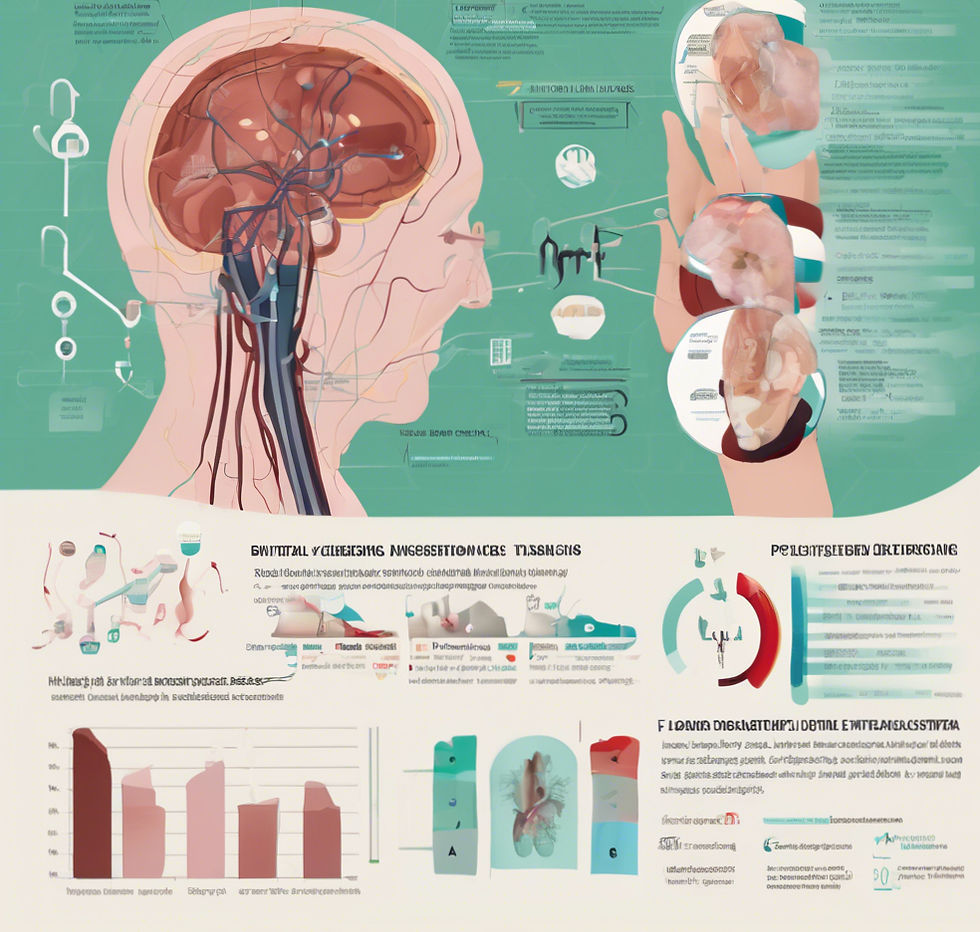The Power of Machine Learning in Clinical Research
- Alex Lou
- Jan 8, 2024
- 3 min read
The Power of Machine Learning in Clinical Research In the field of clinical research, advancements in technology have revolutionized the way we approach the study and management of neurodegenerative diseases. One such technology that has emerged as a game-changer is machine learning. ClearSky Medical Diagnostics, a leading company in this field, harnesses the power of machine learning to provide innovative solutions for patients and researchers alike. Machine learning, a subset of artificial intelligence, enables computers to learn and make predictions or decisions without being explicitly programmed. This technology has the potential to transform the way we analyze and interpret complex data sets in clinical research. Here are a few examples of how machine learning is being utilized by ClearSky Medical Diagnostics: 1. Predictive Analytics: Machine learning algorithms can analyze large amounts of patient data to identify patterns and make predictions about disease progression or treatment outcomes. This can help researchers identify high-risk patients, optimize treatment plans, and improve patient outcomes. 2. Image Analysis: Machine learning algorithms can analyze medical images, such as MRI scans, to detect subtle changes or abnormalities that may be indicative of neurodegenerative diseases. This can aid in early diagnosis and intervention, leading to better patient outcomes. 3. Natural Language Processing: Machine learning algorithms can analyze large volumes of medical literature and clinical notes to extract relevant information and identify trends. This can help researchers stay up-to-date with the latest advancements in the field and make evidence-based decisions. 4. Clinical Trial Design: Machine learning algorithms can assist in the design and optimization of clinical trials. By analyzing historical data and patient characteristics, these algorithms can help researchers identify the most appropriate patient population, determine sample sizes, and optimize study protocols. The application of machine learning in clinical research has the potential to accelerate the development of new treatments and improve patient care. However, it is important to note that machine learning is not a replacement for human expertise. Rather, it is a tool that can augment and enhance the capabilities of researchers and healthcare professionals. If you are a researcher or healthcare professional interested in harnessing the power of machine learning in your work, here are a few tips to get started: 1. Familiarize Yourself with the Basics: Take the time to understand the fundamentals of machine learning, including different algorithms and techniques. This will help you make informed decisions about which approach is most suitable for your research. 2. Collaborate with Experts: Machine learning is a complex field, and it can be beneficial to collaborate with experts who have experience in this area. ClearSky Medical Diagnostics, for example, offers clinical research support services that cover all aspects of study design and management, including the application of machine learning. 3. Start Small: Begin by applying machine learning to a small subset of your data or research question. This will allow you to gain experience and assess the feasibility and potential benefits of using machine learning in your work. 4. Validate and Interpret Results: It is important to validate the results obtained from machine learning algorithms and interpret them in the context of your research question. Machine learning is a tool, and it is crucial to critically evaluate its outputs and consider other factors that may influence your findings. In conclusion, machine learning has the potential to revolutionize clinical research in the field of neurodegenerative diseases. By harnessing the power of this technology, researchers and healthcare professionals can gain valuable insights, improve patient care, and accelerate the development of new treatments. ClearSky Medical Diagnostics is at the forefront of this innovation, offering a wide range of services and products that leverage the power of machine learning. So, if you are looking to enhance your research capabilities, consider exploring the possibilities of machine learning in clinical research.








I was diagnosed with Parkinson’s disease four years ago. For over two years, I relied on prescription medications and therapies, but unfortunately, the symptoms continued to worsen. My mobility declined, tremors increased, and I experienced growing fatigue and discomfort that affected my daily life. Last year, out of desperation and hope, I decided to try an herbal treatment program from NaturePath Herbal Clinic. Honestly, I was skeptical at first, but within a few months of starting the treatment, I began to notice real changes. My energy improved, the discomfort eased, and I felt stronger and more capable in my daily life. Incredibly, I also regained much of my stamina, balance, and confidence. It’s been a life-changing experience I feel more…